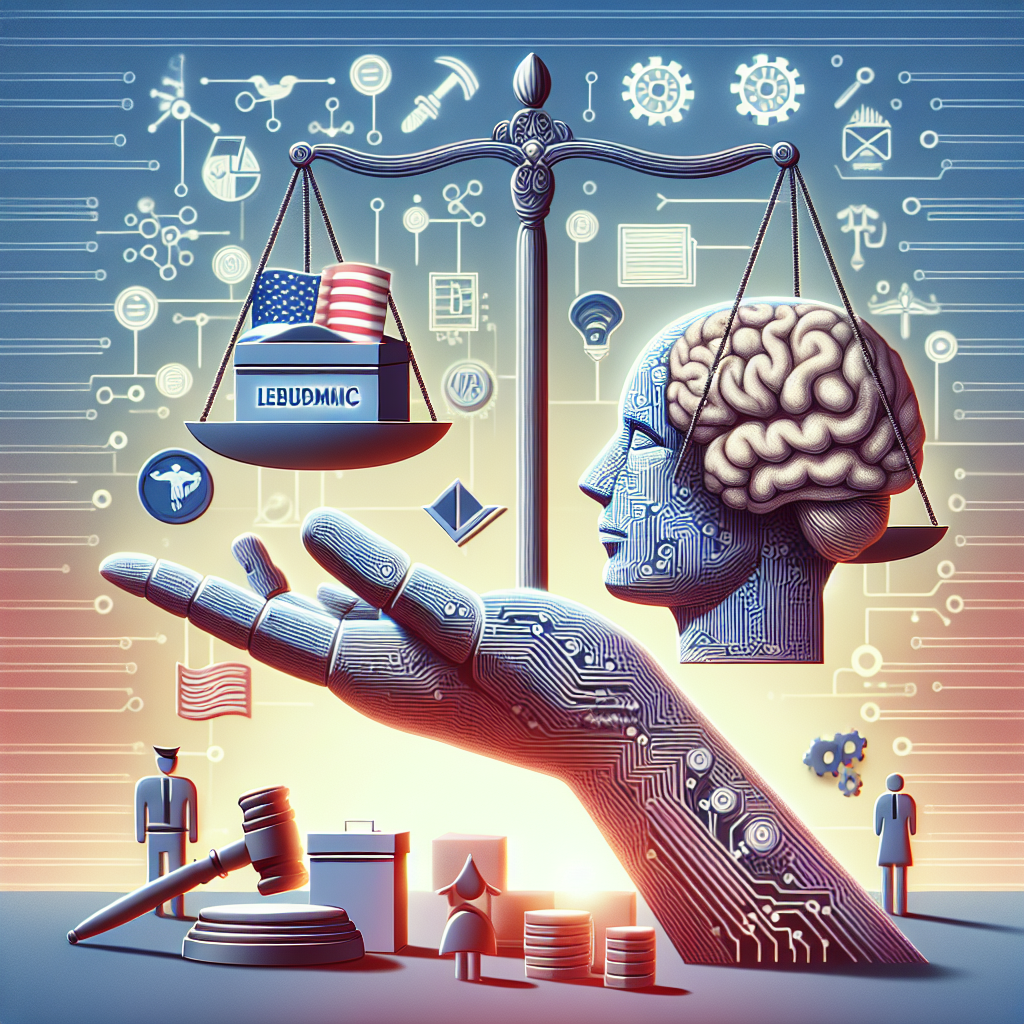Artificial Intelligence (AI) has become an increasingly prominent tool in governance, with governments around the world using AI to streamline processes, improve decision-making, and enhance public services. While AI has the potential to bring about significant benefits, it also poses risks that need to be carefully considered. In this article, we will explore the impacts of AI on democracy and the potential risks it poses to governance.
Impacts of AI on Democracy
AI has the potential to revolutionize governance by making processes more efficient, transparent, and responsive. It can help governments analyze vast amounts of data to make more informed decisions, predict trends, and identify areas for improvement. AI-powered tools can also automate routine tasks, freeing up time for government officials to focus on more complex issues.
However, the use of AI in governance also raises concerns about its impact on democracy. One major concern is the potential for AI to reinforce existing power imbalances and inequalities. AI algorithms are only as good as the data they are trained on, and if the data used to train these algorithms is biased or incomplete, the outcomes produced by AI systems may also be biased. This can result in decisions that disproportionately benefit certain groups or reinforce existing inequalities.
Another concern is the lack of transparency and accountability in AI systems. AI algorithms can be complex and opaque, making it difficult to understand how decisions are made and hold decision-makers accountable. This lack of transparency can erode trust in government institutions and undermine the principles of democracy.
Furthermore, the use of AI in governance raises questions about privacy and data security. AI systems rely on vast amounts of data to function, and governments may collect and analyze sensitive information about their citizens without their consent. This can lead to violations of privacy and the potential for misuse of personal data.
Risks of AI in Governance
The use of AI in governance poses several risks that need to be carefully considered. Some of the key risks include:
1. Bias and discrimination: As mentioned earlier, AI algorithms can perpetuate biases present in the data they are trained on, leading to discriminatory outcomes. This can result in decisions that disproportionately harm marginalized communities and reinforce existing inequalities.
2. Lack of transparency: AI algorithms can be complex and opaque, making it difficult to understand how decisions are made. This lack of transparency can undermine trust in government institutions and hinder accountability.
3. Privacy and data security concerns: The use of AI in governance requires the collection and analysis of vast amounts of data, raising concerns about privacy and data security. Governments must ensure that they have robust data protection measures in place to safeguard sensitive information.
4. Manipulation and misinformation: AI-powered tools can be used to manipulate public opinion and spread misinformation. Governments need to be vigilant about how AI is used in governance to prevent the spread of false information and protect the integrity of democratic processes.
5. Job displacement: The automation of routine tasks through AI can result in job displacement for government workers. Governments must consider how to retrain and reskill workers affected by AI implementation to ensure a smooth transition.
FAQs
Q: How can governments ensure that AI algorithms are free from bias?
A: Governments can take several steps to ensure that AI algorithms are free from bias, such as conducting regular audits of algorithms, diversifying the data used to train algorithms, and involving diverse stakeholders in the development and deployment of AI systems.
Q: What measures can governments take to increase transparency in AI systems?
A: Governments can increase transparency in AI systems by making algorithms open source, providing explanations for how decisions are made, and establishing oversight mechanisms to ensure accountability.
Q: How can governments protect privacy and data security when using AI in governance?
A: Governments can protect privacy and data security by implementing robust data protection measures, obtaining informed consent from citizens before collecting their data, and conducting regular audits to ensure compliance with data protection regulations.
Q: How can governments address job displacement caused by AI implementation?
A: Governments can address job displacement by retraining and reskilling workers affected by AI implementation, investing in education and training programs, and creating new job opportunities in emerging industries.
In conclusion, while AI has the potential to bring about significant benefits in governance, it also poses risks that need to be carefully considered. Governments must take steps to address the potential impacts of AI on democracy, including bias and discrimination, lack of transparency, privacy and data security concerns, manipulation and misinformation, and job displacement. By addressing these risks proactively, governments can harness the power of AI to improve governance while upholding democratic principles.

